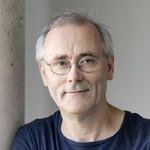Medal for scent research
Dr. Mohammed Khallaf Ali can talk about his research in a captivating way. As a doctoral student, he won science slams and explained his topic "Sex in flies" in lectures for which he received several awards. For his outstanding dissertation at the Max Planck Institute for Chemical Ecology in Jena, Khallaf Ali has now been honored with the Otto Hahn Medal of the Max Planck Society. Today, the native Egyptian works as a scientist in the research group of Professor Gary Lewin at the Max Delbrück Center for Molecular Medicine in the Helmholtz Association (MDC).
Mating fruit flies
As a PhD student in Jena from 2015 to 2020, he investigated the neurobiological basis of sexual communication in 99 fruit fly species of the genus Drosophila and deciphered their scent language: he found that females can recognize males of the same species by their specific scent. Especially the scent profile of species that are closely related differs significantly. This helps prevent mating between different species. Males, in turn, chemically mark their partners during mating, making them less attractive to other males. Khallaf Ali's findings is groundbreaking for understanding how the release of sex pheromones, their perception and processing in the brain, and the resulting behavior in flies can be involved in the emergence of new species, the Max Planck Institute said.
Doctorate during the pandemic
During my PhD, I learned to set high goals for myself and to be enthusiastic about what I do.
Khallaf Ali thinks back on his time in Jena very fondly: "During my PhD, I learned to set high goals for myself and to be enthusiastic about what I do.” However, he also had to deal with setbacks as a PhD student. His last year in Jena was marked by the pandemic; suddenly he had to stay home with two lively children. "I had to work on my PhD thesis and publications at night," he recalls.
For his further career, the neuroscientist left his former research topic behind and is working on a new question at the MDC. In Professor Gary Lewin's research group, he is investigating the sensation of touch and pain in mice and naked mole-rats. In the future, Khallaf Ali would like to lead his own research group, perhaps in his home country Egypt, to which, he says, he would like to give something back. His great wish is to establish an Egyptian institute that is similarly well equipped to the one he is used to in Germany.
About the Otto Hahn Medal
Every year, the Max Planck Society honors up to 30 of the best young scientists with the Otto Hahn Medal and 7500 euros in prize money – mostly for achievements related to their doctorate. The award is usually presented during the annual meeting of the Max Planck Society in the following year.
Further information
Press release of the MPI for Chemical Ecology







